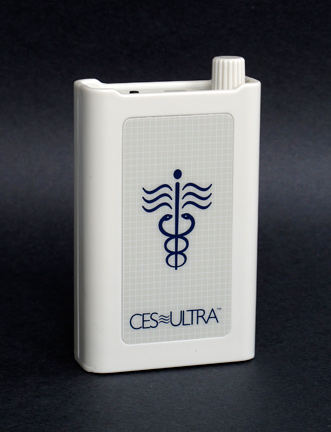|
Brain Stimulation (other)
Brain stimulation may refer to: * ''Brain Stimulation'', a medical journal published by Elsevier * Brain stimulation reward, a process of directly stimulating reward centers in the brain *Cranial electrotherapy stimulation * Deep brain stimulation, a surgical treatment that stimulates parts of the brain with electrical impulses * Electrical brain stimulation, direct or indirect stimulation of the brain with electricity for therapeutic or research purposes * Low field magnetic stimulation * RNS System, a deep brain stimulation treatment for epilepsy patients * Transcranial alternating current stimulation, delivering an oscillatory current over the occipital cortex *Transcranial direct current stimulation Transcranial direct current stimulation (tDCS) is a form of neuromodulation that uses constant, low direct current delivered via electrodes on the head. It was originally developed to help patients with brain injuries or neuropsychiatric conditio ..., the direct application of w ... [...More Info...] [...Related Items...] OR: [Wikipedia] [Google] [Baidu] |
Brain Stimulation (journal)
''Brain Stimulation'' is a bimonthly peer-reviewed medical journal covering the field of neuromodulation. It was established in 2008 and is published by Elsevier. The editor-in-chief is Mark S. George (Medical University of South Carolina). It publishes original research, reviews, and editorials covering various modalities of neuromodulation such as transcranial magnetic stimulation, electrical deep brain stimulation, transcranial direct-current stimulation, ultrasound neuromodulation, and optogenetics. Abstracting and indexing The journal is abstracted and indexed in: According to the ''Journal Citation Reports'', the journal has a 2018 impact factor The impact factor (IF) or journal impact factor (JIF) of an academic journal is a scientometric index calculated by Clarivate that reflects the yearly mean number of citations of articles published in the last two years in a given journal, as i ... of 6.919. References External links * {{Official website, http://w ... [...More Info...] [...Related Items...] OR: [Wikipedia] [Google] [Baidu] |
Brain Stimulation Reward
Brain stimulation reward (BSR) is a pleasurable phenomenon elicited via direct stimulation of specific brain regions, originally discovered by James Olds and Peter Milner. BSR can serve as a robust operant reinforcer. Targeted stimulation activates the reward system circuitry and establishes response habits similar to those established by natural rewards, such as food and sex. Experiments on BSR soon demonstrated that stimulation of the lateral hypothalamus, along with other regions of the brain associated with natural reward, was both rewarding as well as motivation-inducing. Electrical brain stimulation and intracranial drug injections produce robust reward sensation due to a relatively direct activation of the reward circuitry. This activation is considered to be more direct than rewards produced by natural stimuli, as those signals generally travel through the more indirect peripheral nerves. BSR has been found in all vertebrates tested, including humans, and it has provided ... [...More Info...] [...Related Items...] OR: [Wikipedia] [Google] [Baidu] |
Cranial Electrotherapy Stimulation
Cranial electrotherapy stimulation (CES) is a form of neurostimulation that delivers a small, pulsed, alternating current via electrodes on the head. CES is used with the intention of treating a variety of conditions such as anxiety, depression and insomnia. CES has been suggested as a possible treatment for headaches, fibromyalgia, smoking cessation, and opiate withdrawal, but there is little evidence of effectiveness for many of these conditions and the evidence for use in acute depression is not sufficient to justify it. Medical uses A 2014 Cochrane review found insufficient evidence to determine whether or not CES with alternating current is safe and effective for treating depression. FDA came to the same conclusion in December 2019. A 2018 systematic review found that evidence is insufficient that CES has clinically important effects on fibromyalgia, headache, neuromusculoskeletal pain, degenerative joint pain, depression, or insomnia; low-strength evidence suggests modest ... [...More Info...] [...Related Items...] OR: [Wikipedia] [Google] [Baidu] |
Deep Brain Stimulation
Deep brain stimulation (DBS) is a surgical procedure that implants a neurostimulator and electrodes which sends electrical impulses to specified targets in the brain responsible for movement control. The treatment is designed for a range of movement disorders such as Parkinson's disease, essential tremor, and dystonia, as well as for certain neuropsychiatric conditions like obsessive-compulsive disorder (OCD) and epilepsy. The exact mechanisms of DBS are complex and not entirely clear, but it is known to modify brain activity in a structured way. DBS has been approved by the Food and Drug Administration as a treatment for essential tremor and Parkinson's disease (PD) since 1997. DBS was approved for dystonia in 2003, obsessive–compulsive disorder (OCD) in 2009, and epilepsy in 2018. DBS has been studied in clinical trials as a potential treatment for chronic pain, for various affective disorders, including major depression, for Alzheimer's Disease and drug addict ... [...More Info...] [...Related Items...] OR: [Wikipedia] [Google] [Baidu] |


